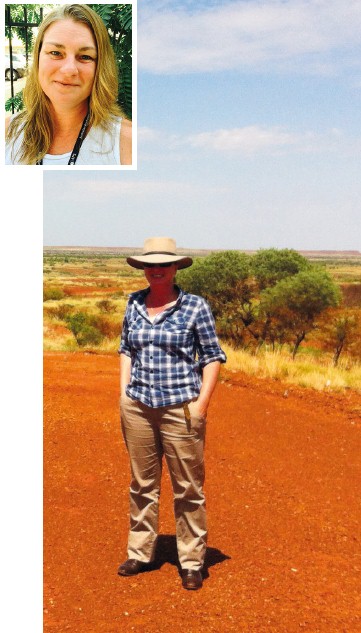Dr Nicole Jeffery-Dawes MAPS MCHP

I live and work in the East Kimberley region of WA. The area I service has a population of around 8,600, one main town and a number of Aboriginal communities spread over an area approximately half the size of Victoria.
I chose a career pathway in remote locations as I am passionate about the inequities of services in remote areas, and also wanted a bit of adventure after studying. Working remotely has many rewards. The variety and autonomy of the work is fantastic, as is the opportunity to connect with like-minded individuals and communities. It’s also a privilege to be able to observe the improvement in your clients in the wider community setting.
However, when I began, I was extremely naive as to the complexities of service delivery in remote areas. Geographical, professional and social isolation can be overwhelming for new clinicians. Client presentations are often complex. In major centres, a team of clinicians and a number of services would be available to clients: in remote areas, you’re often the only option. Working cross-culturally also provides unique but rewarding challenges. Dual relationships (including with clients) are inevitable in small populations. These need to be managed carefully with boundaries put in place for your own wellbeing and to reduce the chance of ethical issues arising.
It is imperative to have excellent and regular supervision and to network with other service providers, as they can provide both professional and moral support through shared knowledge and experience of the area. The APS is also a part of my network through such platforms as the Rural and Remote Interest Group, College of Health Psychologists and on-line professional development opportunities.
Self-care is a must. Eat well, sleep well, exercise and get together with friends regularly. It’s easy to be mindful and connect with nature in remote areas, so camping, fishing and bushwalking are regular strategies. Travelling to the “big smoke” (e.g. Darwin for us) every 3-6 months helps us to relax and gain some perspective. Be gentle on yourself, celebrate the small things and appreciate the challenges and rewards of working in this unique environment.
Disclaimer: Published in InPsych on December 2015. The APS aims to ensure that information published in InPsych is current and accurate at the time of publication. Changes after publication may affect the accuracy of this information. Readers are responsible for ascertaining the currency and completeness of information they rely on, which is particularly important for government initiatives, legislation or best-practice principles which are open to amendment. The information provided in InPsych does not replace obtaining appropriate professional and/or legal advice.